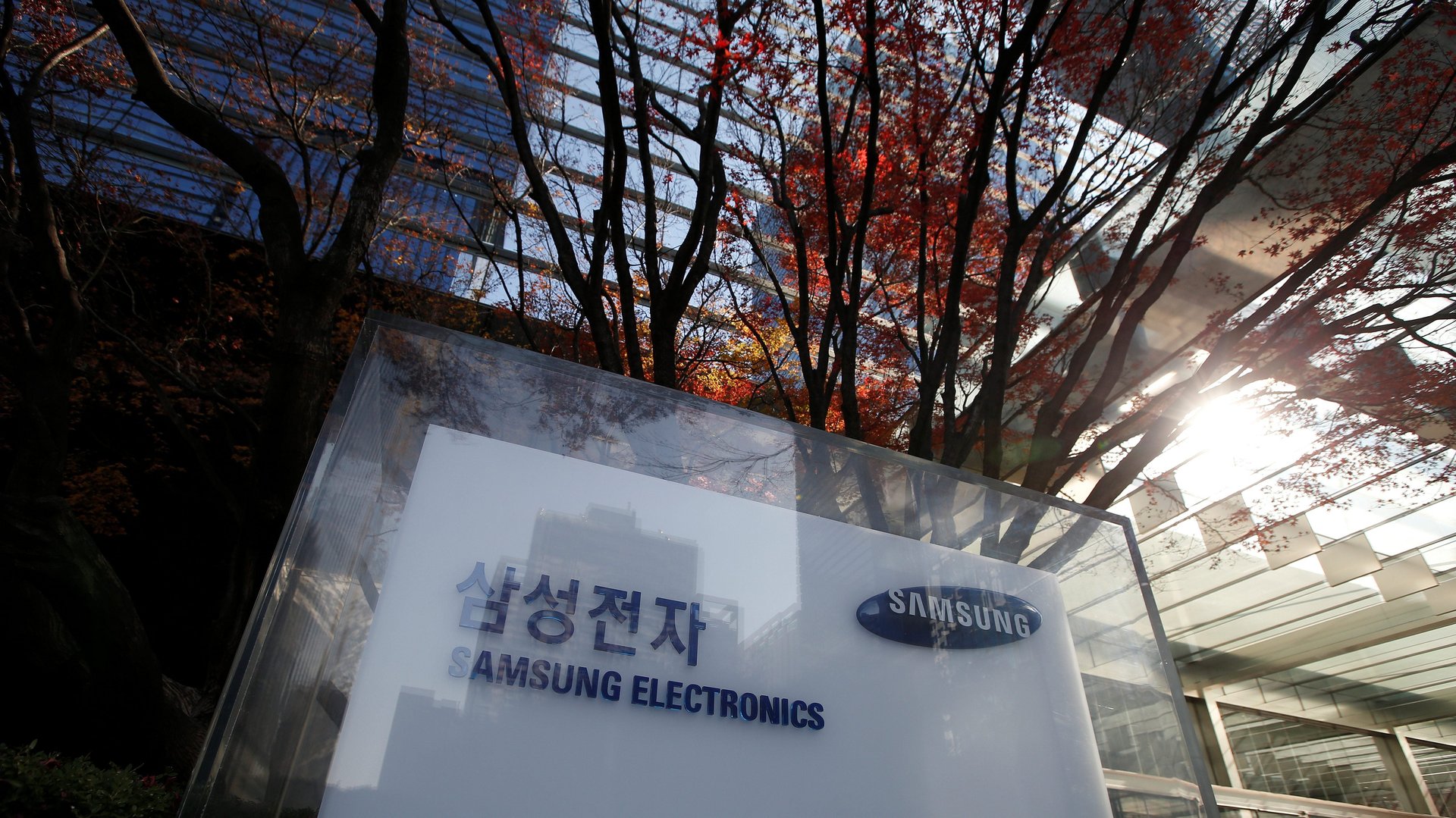After weeks of deliberations, Samsung Electronics tells investors it’ll think some more about its future
Samsung Group isn’t exactly known for corporate transparency or a diverse, international set of leaders. The South Korean conglomerate consists of nearly 60 affiliates bound together by cross-shareholdings, and crown jewel Samsung Electronics has a board consisting of nine Korean men.


Samsung Group isn’t exactly known for corporate transparency or a diverse, international set of leaders. The South Korean conglomerate consists of nearly 60 affiliates bound together by cross-shareholdings, and crown jewel Samsung Electronics has a board consisting of nine Korean men.
But change is in the air, at least by Samsung standards. In early October activist shareholders called upon Samsung Electronics to split into two entities: an operational company and a holding firm. The move would, the investors argued, improve corporate governance and unlock shareholder value, with the holding firm becoming the main ownership vehicle (paywall) for the family of Samsung Group chairman Lee Kun-hee.
The company promised a response by the end of November, and today (Nov. 29), at long last, it provided one. After nearly two months of deliberation, the company announced that it will—drum roll, please—consider the investors’ proposal. But the process, aided by “external advisors,” will take at least another six months, and the company emphasized its neutrality toward the idea.
Meanwhile the company did take some measures to restore investor confidence, which has been shaken by massive product recalls involving exploding smartphones and self-destructing washing machines.
Samsung said it will increase cash returns to investors—boosting per-share dividends by 36% this year over last. The activist shareholders, led by Elliott Management affiliates Blake Capital and Potter Capital, had hoped for a much larger special dividend, but the company announced its intention to maintain a cash balance of $56 billion to $60 billion, which some see as excessive.
While the statement was bit underwhelming—company shares remained flat afterwards—it did mark the first time that Samsung officially announced a possible shift to a holding company set-up. That could at least partially appease investors and government officials who have called for a simplification of the conglomerate’s complicated ownership structure.
And Samsung Electronics said it would add at least one outside director to its board. It might not sound like much, but for a tightly controlled behemoth like Samsung, even that is notable.